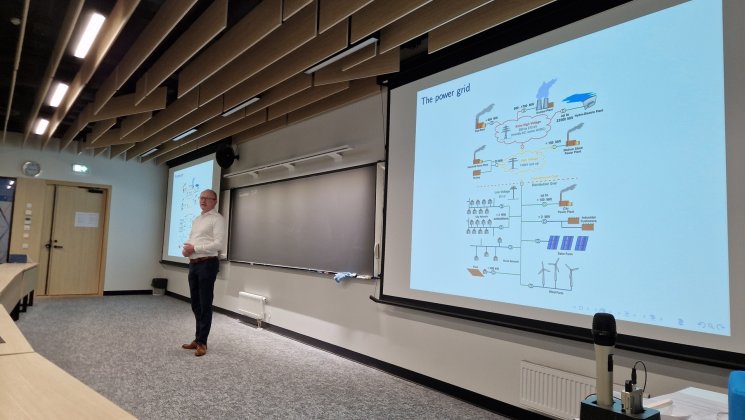-
Faculty of Arts and HumanitiesDean's Office, Faculty of Arts and HumanitiesJakobi 2, r 116-121 51005 Tartu linn, Tartu linn, Tartumaa EST0Institute of History and ArchaeologyJakobi 2 51005 Tartu linn, Tartu linn, Tartumaa EST0Institute of Estonian and General LinguisticsJakobi 2, IV korrus 51005 Tartu linn, Tartu linn, Tartumaa ESTInstitute of Philosophy and SemioticsJakobi 2, III korrus, ruumid 302-337 51005 Tartu linn, Tartu linn, Tartumaa EST0Institute of Cultural ResearchÜlikooli 16 51003 Tartu linn, Tartu linn, Tartumaa EST0Institute of Foreign Languages and CulturesLossi 3 51003 Tartu linn, Tartu linn, Tartumaa EST0School of Theology and Religious StudiesÜlikooli 18 50090 Tartu linn, Tartu linn, Tartumaa EST0Viljandi Culture AcademyPosti 1 71004 Viljandi linn, Viljandimaa EST0Professors emeritus, Faculty of Arts and Humanities0Associate Professors emeritus, Faculty of Arts and Humanities0Faculty of Social SciencesDean's Office, Faculty of Social SciencesLossi 36 51003 Tartu linn, Tartu linn, Tartumaa EST0Institute of EducationJakobi 5 51005 Tartu linn, Tartu linn, Tartumaa EST0Johan Skytte Institute of Political StudiesLossi 36, ruum 301 51003 Tartu linn, Tartu linn, Tartumaa EST0School of Economics and Business AdministrationNarva mnt 18 51009 Tartu linn, Tartu linn, Tartumaa EST0Institute of PsychologyNäituse 2 50409 Tartu linn, Tartu linn, Tartumaa EST0School of LawNäituse 20 - 324 50409 Tartu linn, Tartu linn, Tartumaa EST0Institute of Social StudiesLossi 36 51003 Tartu linn, Tartu linn, Tartumaa EST0Narva CollegeRaekoja plats 2 20307 Narva linn, Ida-Virumaa EST0Pärnu CollegeRingi 35 80012 Pärnu linn, Pärnu linn, Pärnumaa EST0Professors emeritus, Faculty of Social Sciences0associate Professors emeritus, Faculty of Social Sciences0Faculty of MedicineDean's Office, Faculty of MedicineRavila 19 50411 Tartu linn, Tartu linn, Tartumaa ESTInstitute of Biomedicine and Translational MedicineBiomeedikum, Ravila 19 50411 Tartu linn, Tartu linn, Tartumaa ESTInstitute of PharmacyNooruse 1 50411 Tartu linn, Tartu linn, Tartumaa ESTInstitute of DentistryL. Puusepa 1a 50406 Tartu linn, Tartu linn, Tartumaa ESTInstitute of Clinical MedicineL. Puusepa 8 50406 Tartu linn, Tartu linn, Tartumaa ESTInstitute of Family Medicine and Public HealthRavila 19 50411 Tartu linn, Tartu linn, Tartumaa ESTInstitute of Sport Sciences and PhysiotherapyUjula 4 51008 Tartu linn, Tartu linn, Tartumaa ESTprofessors emeritus, Faculty of Medicine0associate Professors emeritus, Faculty of Medicine0Faculty of Science and TechnologyDean's Office, Faculty of Science and TechnologyVanemuise 46 - 208 51003 Tartu linn, Tartu linn, Tartumaa ESTInstitute of Computer ScienceNarva mnt 18 51009 Tartu linn, Tartu linn, Tartumaa ESTInstitute of GenomicsRiia 23b/2 51010 Tartu linn, Tartu linn, Tartumaa ESTEstonian Marine Institute0Institute of PhysicsInstitute of ChemistryRavila 14a 50411 Tartu linn, Tartu linn, Tartumaa ESTInstitute of Mathematics and StatisticsNarva mnt 18 51009 Tartu linn, Tartu linn, Tartumaa EST0Institute of Molecular and Cell BiologyRiia 23, 23b - 134 51010 Tartu linn, Tartu linn, Tartumaa ESTTartu ObservatoryObservatooriumi 1 61602 Tõravere alevik, Nõo vald, Tartumaa EST0Institute of TechnologyNooruse 1 50411 Tartu linn, Tartu linn, Tartumaa ESTInstitute of Ecology and Earth SciencesJ. Liivi tn 2 50409 Tartu linn, Tartu linn, Tartumaa ESTprofessors emeritus, Faculty of Science and Technology0associate Professors emeritus, Faculty of Science and Technology0Area of Academic SecretaryHuman Resources OfficeÜlikooli 18, ruumid 302 ja 304 50090 Tartu linn, Tartu linn, Tartumaa EST0Area of Head of FinanceFinance Office0Area of Director of AdministrationInformation Technology Office0Administrative OfficeÜlikooli 17 (III korrus) 51005 Tartu linn, Tartu linn, Tartumaa EST0Estates Office0Marketing and Communication OfficeÜlikooli 18, ruumid 102, 104, 209, 210 50090 Tartu linn, Tartu linn, Tartumaa EST0Area of Vice Rector for DevelopmentCentre for Entrepreneurship and InnovationNarva mnt 18 51009 Tartu linn, Tartu linn, Tartumaa EST0University of Tartu Natural History Museum and Botanical GardenVanemuise 46 51003 Tartu linn, Tartu linn, Tartumaa EST0International Cooperation and Protocol Office0University of Tartu MuseumLossi 25 51003 Tartu linn, Tartu linn, Tartumaa EST0Area of RectorRector's Strategy OfficeInternal Audit OfficeArea of Vice Rector for Academic AffairsOffice of Academic AffairsUniversity of Tartu Youth AcademyUppsala 10 51003 Tartu linn, Tartu linn, Tartumaa ESTStudent Union OfficeÜlikooli 18b 51005 Tartu linn, Tartu linn, Tartumaa EST0Centre for Learning and TeachingArea of Vice Rector for ResearchUniversity of Tartu LibraryW. Struve 1 50091 Tartu linn, Tartu linn, Tartumaa ESTGrant Office
Career opportunities
The Actuarial and Financial Engineering master's programme prepares students for professional opportunities or further PhD studies in Mathematical Statistics at the University of Tartu or elsewhere. The University of Tartu offers doctoral programmes in Mathematics, Economics or Mathematical Statistics with specialisation in Financial Mathematics.
Our graduates are welcome at:
- Banks and other financial institutions
- Insurance companies
- Financial departments of various companies
- Analytics departments of various companies
- Academic career and PhD studies
Positions our graduates are/have been holding, an incomplete list:
- Actuary at ERGO Insurance SE
- Data Analyst at Energy Sales Department in Eesti Energia
- Senior Business Intelligence Analyst at BigBank AS
- Statistical Programmer at StatFinn Oy
- Statistical Data Analyst at STACC (Software Technology and Applications Competence Center)
- Senior Scoring Risk Analyst at 4finance AS (Latvia)
- Software Engineer at Facebook
- Pricing Actuary at Swedbank P&C Insurance AS
- Specialist at Agricultural Registers and Information Board
- Financial Director at E.Gulbja Laboratorija (Latvia)
- PhD students at different universities
Stories of alumni

"Currently, I am an analyst and Business Intelligence consultant in ScandicFusion, helping (mostly insurers) to structurize data and build a data structure to use for business analysis. Before starting my studies in Actuarial and Financial Engineering, I was working in an insurance company as an analyst and risk underwriter and my interest in insurance was one of the main motivators to look for additional education possibilities in a related field.
Studies in Actuarial and Financial Engineering cover many areas, helping to grasp main concepts in mandatory courses and allows you to follow the path that seems to be interesting for each student - insurance, finance, algorithms, economics, mathematics, or others. Academical knowledge gained during studies is also supplemented with a general mindset and knowledge to be successful in any position that requires analytical, logical, detail-oriented, and technical skills. The teaching, as well as technical staff, is professional and helpful, always providing sufficient information about the course, study process as such and everyday life in Tartu (especially at the very beginning of studies, to get settled in).
I do not think I would emphasize one or several courses, the most valuable is general experience gained during my studies, because studies only give you some basic set of tools and skills to start your journey, but the challenges and experience are what makes you a professional. I highly appreciate the opportunity itself to be part of the UT family and Tartu itself is a very beautiful city, close to my heart and I miss it."

"As for me, the main benefit of the program of Actuarial and Financial Engineering at the University of Tartu is a very good balance between theoretical knowledge and practical skills. Studying in this program I obtained a strong background in mathematics, statistics, and the basics of economics. Also, we had a lot of computer labs which gave the students the possibility to understand how to implement these bits of knowledge to solve problems from real life. Thereby I improved my skills in R, Python, and Excel.
The sphere of data analysis is rapidly developing right now and specialists with the appropriate skills are in great demand in the labor market. Therefore, students of this program have a lot of opportunities for a successful career. In conclusion, I would say that the program of Actuarial and Financial Engineering is a great start for students who want to develop in the sphere of finances, data science, or statistics and reach high professional results in named fields."

Alumni blog | Jorn Baayen: Mathematics, science and energy

University of Tartu invites students and alumni to mentoring programme

